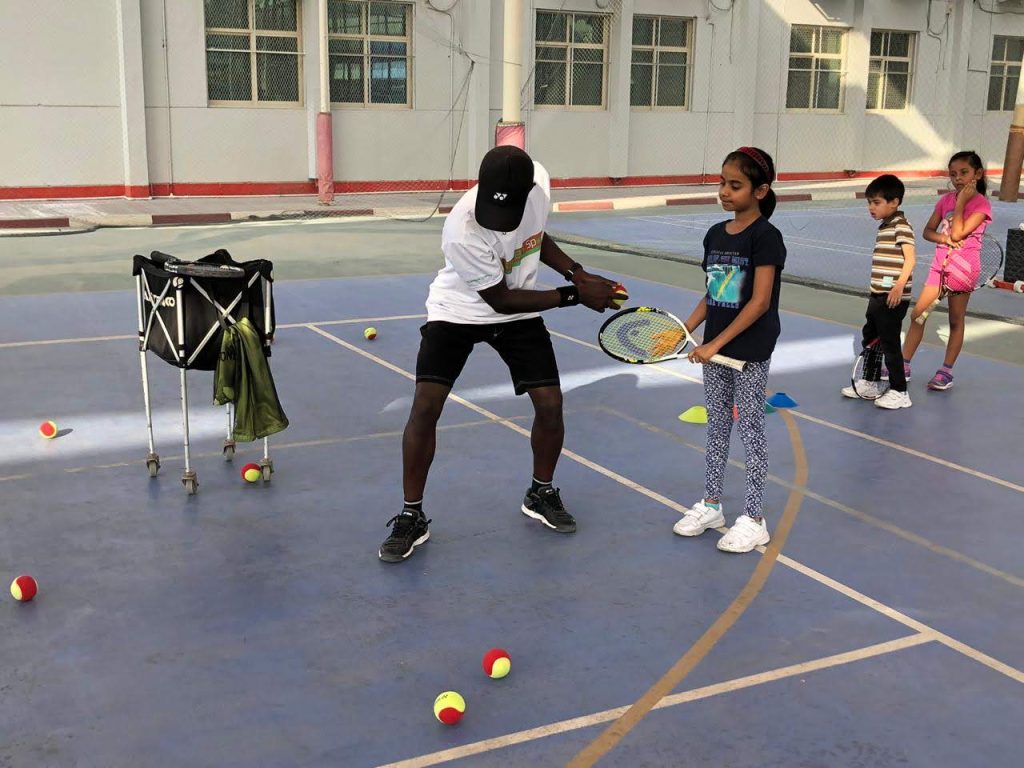A Different Kind Of Game
Football (or soccer) is often called the beautiful name and can be played almost anywhere with nothing more than just a simple ball and a group of your buddies. Tennis on the other hand requires a completely different approach.
Tennis is a sport that demands commitment to training, specific equipment, and a dedicated and specific environment for play which is called a tennis court.

Unlike football where you can master skills on your own, tennis needs a playing partner or someone with similar or better skills for it to be enjoyed.
READ ALSO: How Coach Patrick Is Changing The Narrative At LKJ Tennis Club
A Love Requiring Dedication
Tennis can be incredibly fun to play even for kids and beginners but reaching advanced or professional levels requires years of practice and commitment to daily improvement. It takes more than just basic interest – it requires a dedicated passion.
And because tennis is not a casual game it requires a focused mindset right from the start. It requires a willingness to fail. Let me explain what I mean.
Kicking a ball your first day on a football pitch is easy but most people will fail to hit a tennis ball with a racket their first time out.
When Families Support Tennis
The strong parental influences in professional tennis is no surprise. Many top tennis players have strong family support.
From Roger Federer’s parents Robert and Lynette, the Williams sisters’ father Richard, Rafa Nadal’s uncle Toni Nadal and Andy Murray’s mom, Judy Murray are all just a few examples of how family can be a major influence in tennis development in early youth.
But why does family play such a pivotal role in young tennis players? There are several reasons for this. Tennis is most easily mastered in childhood because it requires a high level of commitment to play and practice in the learning stage.
READ ALSO: Every Tennis Swing Tells A Story – Real Life Experience
Busy adults simply don’t have the time to put into learning the game on a consistent basis especially if it involves daily routines.
A Need For Parental Passion
Nurturing a love for the game of tennis and dedicating the time requires passionate parents. These parents often have a personal love for tennis or see it as a valuable developmental tool for their children.
These tennis parents are will to pay for lesson or even teach the kids themselves. They will put up the money for lessons, hire a coach and attend tournaments and events.
This level of commitment has a profound influence not only on the parents but on the kids mentality towards disciple and self improvement.
READ ALSO: How Tennis League Started At The Diamond Lawn Tennis Club
Hallmarks of Early Guidance
Tennis is often called a “gentleman’s game” because it has deep roots in discipline and sportsmanship. Players on the professional tour are usually conservative well mannered and polished.
You hardly find the controversial behavior that is so prevalent in many other sports.
This is where the early influence of parental guidance begins to reveal itself. In football a players can train independently and still become a super star. In tennis parental influence is more pronounced and possibly more impactful.
When Families Fail In Tennis
The Nigeria tennis scene also provides lots of evidence for the need of family support. Many talented players learn the game of tennis on their own. These players often start off as local ball boys working in tennis clubs because they live within the surrounding community.
In time these young ball boys learn to play the game. They get opportunities to play with club members and their game improves. They soon begin to perform at very high levels attracting the attention of the local community.
READ ALSO: Tennis Meets Data: Meet Navy Tennis Club’s Daniel Gabriel
But this is where the fairytale ends. Although they have the raw talent they often lack an active support base that can provide guidance. They are unable to make informed decisions to progress their careers further.
Many will lack the discipline needed to survive the rigours of professional tennis. They will fall prey to distractions like drugs and alcohol squandering their early potential.
Conclusion
Family support is crucial for encouraging young people to play tennis. It creates an environment where young players can learn values and lessons that extend far beyond the tennis court and into other areas of life.
They will learn valuable lessons about dedication, perseverance, and sportsmanship that will benefit them on and off the court.
In the next part of the series we will explore the strategies that can be used to encourage tennis among children and youths.
We will discuss how to determine if a child has a natural interest or passion for the game and provide insights that ensure every child’s love for the game is sustained within limited resources of time and money.